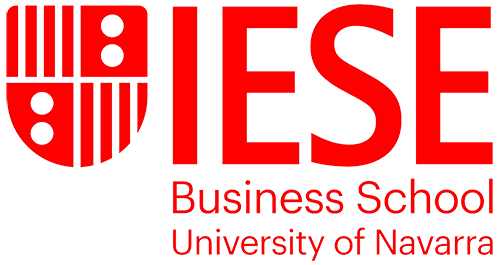Create the EuroTeQ Connector
Table of Contents
Coordinating Empirical Research
The EuroTeQ Connector has been coordinating empirical research efforts across all work packages. We set up five joint research projects on the following topics:
- Student Engagement & Self-regulation
- Challenge-based learning in (virtual) lectures and courses (SEFI: European Society for Engineering Education)
- SEFI publication: not published yet
- SEFI presentation: Congruence and friction between teachers’ intentions and students’ perceptions of CBL courses
- Co-creation on a structural level: Co-creation in education, research and innovation
- Digital campus, administration, learning environments (and quality assurance)
- Overarching longitudinal research project on students’ development throughout a BA programme – Compare of EuroTeQ- and non-EuroTeQ-students
You can read more about their status HERE.
EuroTeQ 2030 is launching new expert and research communities. These communities are designed to connect, harmonize, and enhance efforts in various facets of educational research, with a focus on elements such as online education, challenge-based learning (CBL), and teaching European values. These expert teams serve as a focal point for the EuroTeQ community, with the potential for more teams to be explored as the project evolves.
The primary goal of establishing these expert teams is to connect educational researchers and promote the transformation of project activities into enduring partnerships. By doing so, EuroTeQ aims to build a sustainable framework for the advancement of educational research. Since some of these themes align with the focus of the BoostEuroTeQ project, active collaboration and exchange with the BoostEuroTeQ colleagues will help ensure the efforts are consistent.
The success of the expert teams will be measured through key indicators, including:
- Continuous Joint Research Projects: The establishment and execution of collaborative research initiatives.
- Catalogue of Harmonized Monitoring Tools: Creating a comprehensive set of standardized monitoring tools available to different work packages.
- Coordination of Research Workshops: The successful organization of workshops to support and strengthen the EuroTeQ pedagogical research community.
Educational Community
The EuroTeQ Education Lab aims to foster innovation in education and bridge the gap between educational research and practical implementation. This laboratory is designed to be a flagship initiative with high visibility and impact, bringing together educators, researchers, and practitioners together to drive evidence-based improvement in education.
The Education Lab acts as a bridge between theoretical research on innovative educational approaches and educators who put them into practice.
- Long-term impact for educators: Our goal is to develop strategies that generate tangible long-term impacts for teachers. We will work closely with educators to enhance their skills and knowledge.
- Inviting experts: The laboratory will invite experts in innovative educational formats such as blended learning, flipped classrooms, learning labs, and challenge-based learning. These experts will share their insights and experiences to inspire innovation within the EuroTeQ community.
- Platform for documentation: We have provided a TalTech Data repository for documenting educational and research activities within EuroTeQ. This platform will serve as a repository for exchanging experiences, knowledge, and expertise, including presentations by invited experts, publications, reports produced within EuroTeQ, and other open educational resources.
Longitudinal Approach
Throughout the life of the project, EuroTeQ is committed to conducting a comprehensive longitudinal study following a cohort of students. This initiative, which began in the first project phase, is being expanded to include an in-depth examination of students’ learning paths and their interactions with the EuroTeQ Engineering University.
This study aims to investigate students’ evolving attitudes and values toward European values, the European Union, digitalisation, sustainability, social responsibility, and social entrepreneurship, and their connection to EuroTeQ’s teaching activities.
Approach and Implementation
- Connecting stakeholders: The first step involves bringing together relevant departments, schools, deans, and lecturers to identify suitable degree programs for inclusion in the study, with a focus on engineering, business/management, and political sciences.
- Implementation plan: Subsequently, an implementation plan and appropriate research instruments will be developed in collaboration with various stakeholders, including departments, schools, and other work packages.
- Feedback plan: A feedback plan will be established to ensure that academic staff, schools, study managers, and other work packages are included in the dissemination of research findings.
- Workshops and stakeholder engagement: Workshops with relevant stakeholders will be organized to discuss research results and their potential impact on teaching and learning. Additionally, where applicable, Master’s and PhD students will be included in the monitoring as part of their learning path, potentially serving as case studies for relevant Master’s or PhD theses.
- Sustainability: To ensure sustainability of monitoring activities, EuroTeQ will explore alternative funding sources, both internally and externally.
This research will play a pivotal role in advancing the teaching and learning approaches within EuroTeQ and equipping students to face future challenges.
Engaging Postgraduates
In the EuroTeQ 2030 project phase, we are launching an initiative to involve these postgraduate students in various project activities.
At the heart of this initiative, we offer research-focused postgraduate education aligned with EuroTeQ’s overarching research goals. In the initial phase, we pinpointed specific research areas that matched the project’s objectives and the expertise of our partner institutions. It will set the stage for PhD candidates to actively engage in projects and activities closely related to their research interests. Such involvement is vital for nurturing the next generation of researchers and ensuring that they gain the practical experience needed for success in their future careers.
Additionally, we will actively promote the programme to attract a wide pool of candidates. We will also create networking opportunities for PhD students to connect with peers who share similar research interests. By enhancing the visibility of EuroTeQ for PhD candidates and providing hands-on research opportunities, the project ensures that EuroTeQ’s impact extends from academic studies to professional careers. This initiative marks a significant advancement in research and innovation within the EuroTeQ Engineering University.







